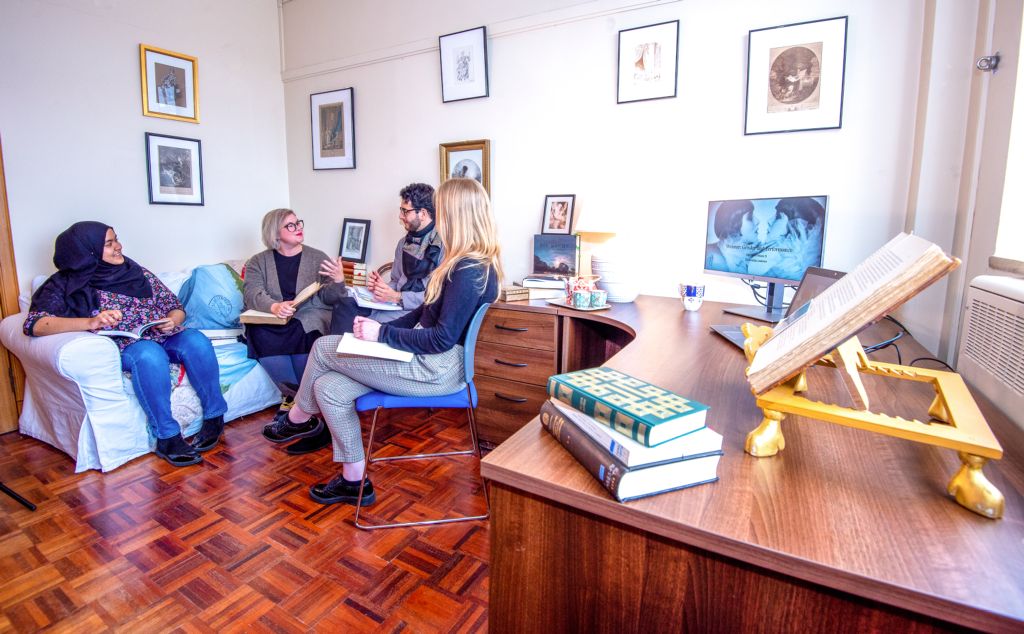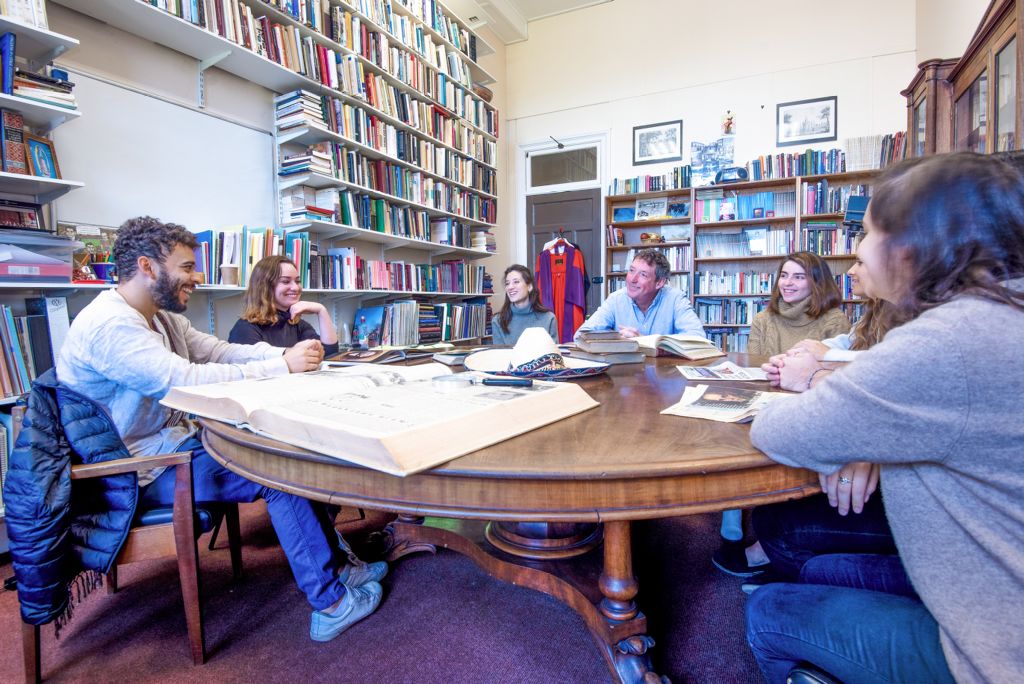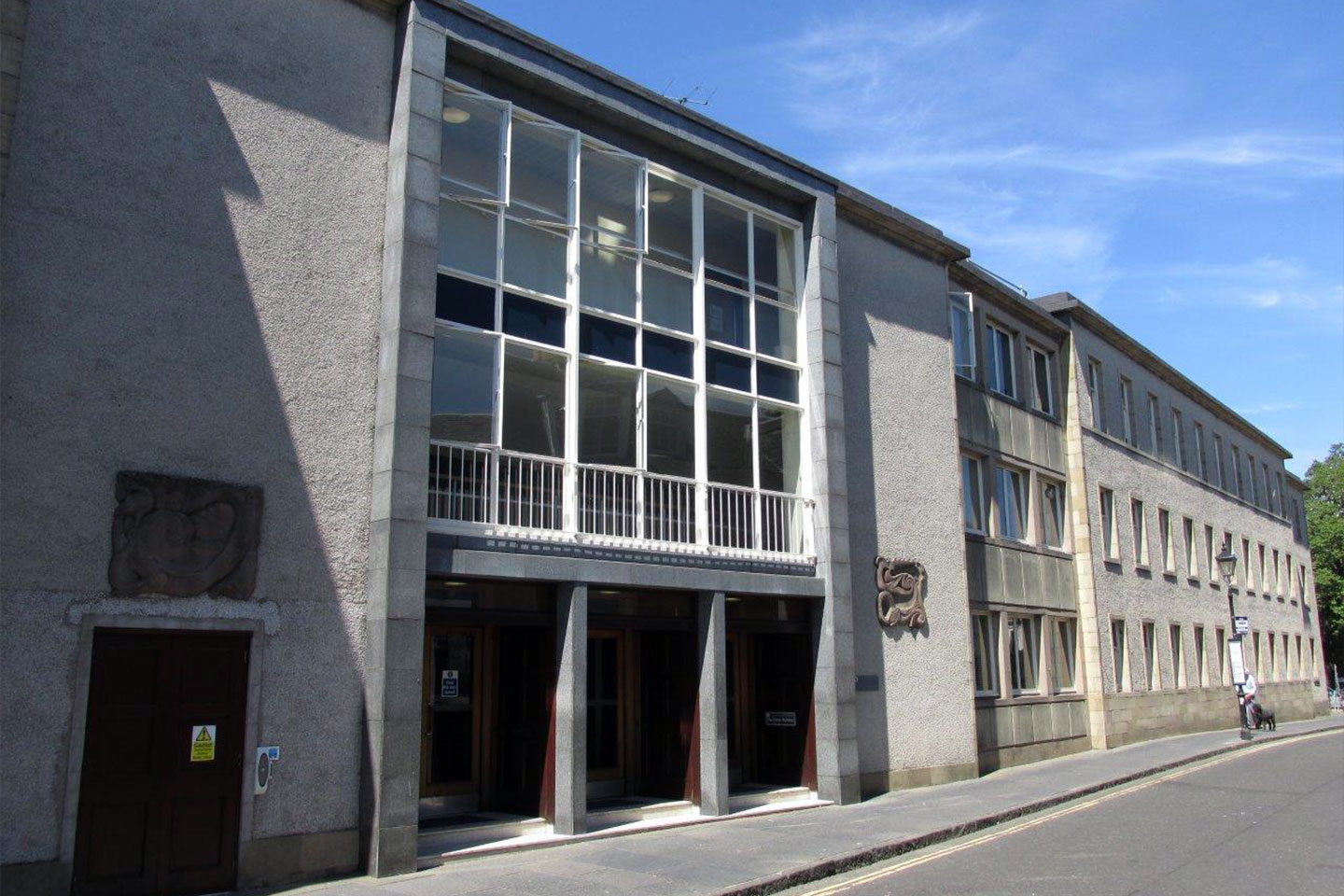About the School of Modern Languages
The School of Modern Languages at the University of St Andrews:
- is one of the largest and most diverse of its kind in the UK - the School offers degree programmes in seven languages as well as a dynamic cross-disciplinary programme in comparative literature
- is consistently rated among the best in the UK by major national rankings - the Guardian University Guide ranked St Andrews 1st in the UK for languages and linguistics in 2024 and 2025
- prides itself on being a vibrant, diverse, inclusive and engaging academic community that welcomes all students wishing to pursue the study of foreign languages and cultures and comparative literature
- believes that the acquiring of high-level language skills goes hand in hand with studying culture - with partners all over Europe and the Middle East, the School sees living, studying, and working abroad as an integral part of language study
- has an exceptionally broad variety of research interests ranging from the medieval period to the present day and engages with literatures and cultures from around the world
- was ranked first in Scotland in the most recent UK national research assessment exercise - more than 80% of the School's research and impact was judged to be world-leading or internationally excellent
- is home to three research centres and one research institute and the annual Byre World programme brings together staff, students, and guests in events that share the School's research with the wider University and the public
 Dr Colette Lawson, Department of German, and tutorial group
Dr Colette Lawson, Department of German, and tutorial group
 Professor Will Fowler, Department of Spanish, and tutorial group
Professor Will Fowler, Department of Spanish, and tutorial group
History and location
Even before modern languages was introduced as a degree subject in its own right in 1892, female students at St Andrews studied French, German, and Italian as part of what was then known as the "Ladies Literate in Arts" qualification. Today, female professors out-number their male counterparts in the School.
One hundred years after the introduction of modern languages, the individual departments were amalgamated into the current School of Modern Languages. It is now one of the largest schools of modern languages in the UK.
The School of Modern Languages is based in the Buchanan Building on Union Street in the centre of St Andrews with some academic staff and research students having offices in the historic St Salvator's Quad.
Strategic plan
The School of Modern Languages' Strategic Plan 2020-25 sets out the School's ambitions to develop its research and teaching activities and support an environment that reflects the School's core values of trust, transparency, accountability, inclusivity, and fairness.
Learn more about the School's approach to equality, diversity, and inclusion and our access and outreach activities for for primary and secondary schools.
Giving to Modern Languages at St Andrews
The School of Modern Languages has a number of ways in which you can contribute financially to those who study languages at St Andrews.
Number 1 in the UK for languages and linguistics
The University of St Andrews was ranked first in the UK for languages and linguistics by the Guardian University Guide in 2024 and 2025. The ranking reflects the excellence of language, cultural, and comparative literature studies at the School of Modern Languages.
